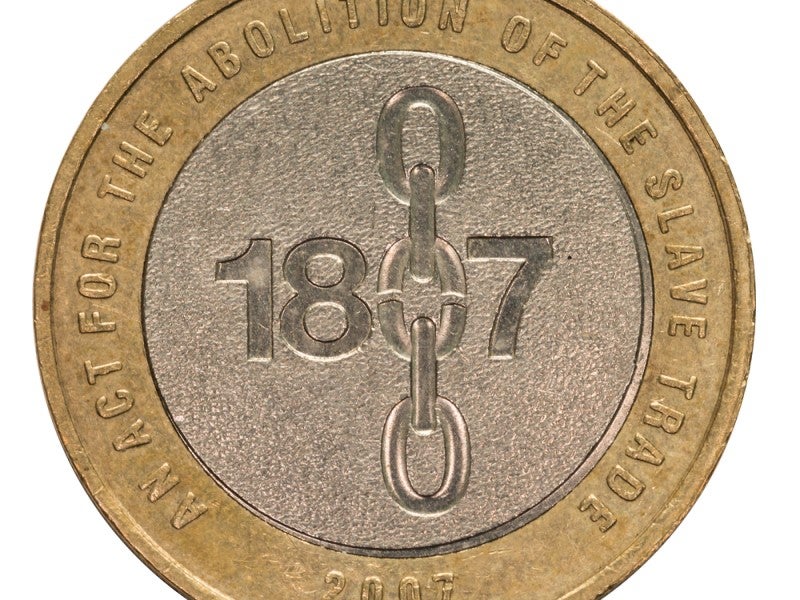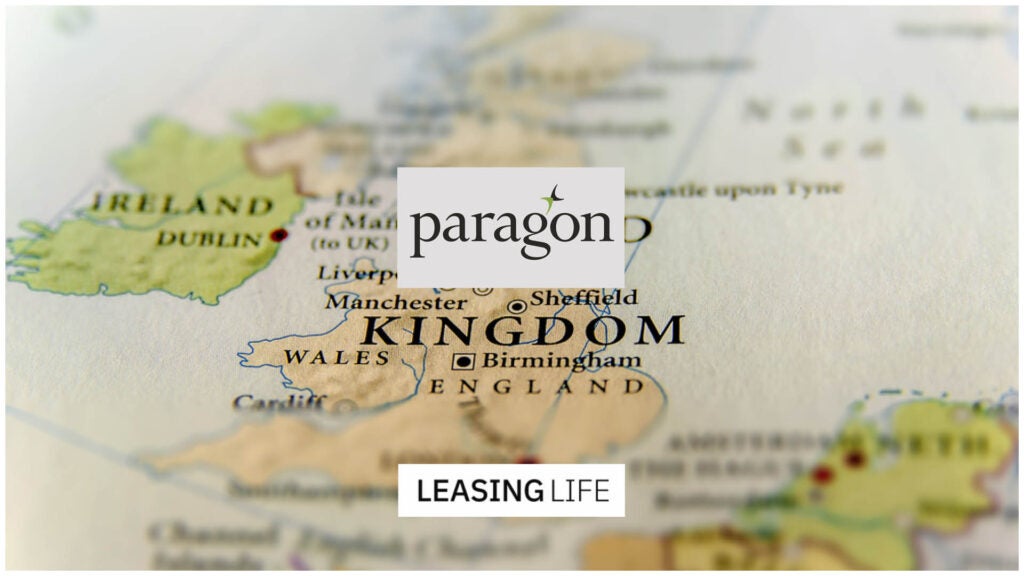
The Black Lives Matter campaign has reached into corporate boardrooms urging many businesses to face up to their past links with slavery. In the UK, bank asset finance providers, among others, have apologised for their past links to the slave trade and pledged their support for ethnic minorities. Alejandro Gonzalez reviews the press reports.
In 1833, when the British government signed the Slavery Abolition Act, approximately 47,000 individuals involved in the trans-Atlantic slave trade were offered compensation for their loss of ‘property’.
In the legal fiction of the time, property referred not just to the plantations but to the enslaved men, women and children who worked the land.
While property had no rights, property owners did. So to compensate the owners for the loss of their slaves, the government paid out £20m (equivalent to 40% of the national budget).
This was financed by borrowing from taxpayers (through the sale of perpetual debt). The size of the bailout was so large that the debt was only paid back in 2015.
Legacies of British Slave-ownership, an open-access database run by University College London’s Department of History, contains information about every slave owner in the British Caribbean, Mauritius and the Cape at the moment of abolition, and details their claim for compensation at the time.
How well do you really know your competitors?
Access the most comprehensive Company Profiles on the market, powered by GlobalData. Save hours of research. Gain competitive edge.

Thank you!
Your download email will arrive shortly
Not ready to buy yet? Download a free sample
We are confident about the unique quality of our Company Profiles. However, we want you to make the most beneficial decision for your business, so we offer a free sample that you can download by submitting the below form
By GlobalDataSome of the UK’s biggest and oldest banks have been cited in press reports this month for their past links to slavery and because directors of predecessor companies have appeared in the UCL database, these include RBS Group, HSBC, Lloyds Banking Group, Barclays and Danske Bank, all of which run hugely successful UK asset finance subsidiaries and divisions today.
UK bank asset finance and slavery
RBS Group
The bank first acknowledged its links to the slave trade more than a decade ago when it published an investigation that gave historians and archivists access to its historic records.
The Historical Research Report: Predecessor Institutions Research Regarding Slavery and the Slave Trade, was published by RBS in 2006 (updated in 2009), and found that directors of RBS Group predecessors had owned slaves, as well as giving loans and other support to plantation owners in the British Caribbean.
In addition, the 2006 report found: “The records also show that RBSG predecessors were closely involved in the British campaign for the abolition of slavery.
“In 1788 Bristol was the first city outside of London to set up a committee for the abolition of the slave trade and three of RBSG’s Bristol predecessor bank partners were founder members.
“Our predecessors also banked a number of individuals and organisations that campaigned for the abolition of slavery and to improve slave welfare.
“These included William Wilberforce, leader of the parliamentary campaign to abolish the slave trade and slavery, who was joint owner with RBSG’s predecessor bankers of a merchant house in Hull, and his friend and well-known fellow campaigner, Henry Thornton, London agent to The Royal Bank of Scotland and a Royal Bank shareholder.”
This month, an investigation by The Times, relying on the UCL database, found that: “John Stewart, a director of the London and Westminster Joint Stock Bank, one of the predecessors of NatWest, received £22,485, equivalent to £2.9m, for the loss of 433 slaves in British Guiana at abolition.”
An RBS Group spokeswoman told Leasing Life: “As an organisation with a history stretching back more than 300 years, it is inevitable that these important and painful issues have a place in our history.
“We recognise our responsibility to engage with that. Over the past 15 years, RBS Group has been aware of these issues and has looked into its past links with slavery very extensively and thoroughly, using both its own archives and the growing body of research materials available externally to understand and document the connections.
“New external research resources have continued to be made available, and as a consequence we are still exploring, learning and adding to our understanding.
Meanwhile, our archives are open to historians to conduct their own research, and a number of academics over the years have used our resources for their own work in this area.
“Black Lives Matter is having a profound impact on us as an organisation, with colleagues right across the bank driving a frank and open discussion about the challenges faced by the BAME community and how we can get better as a business.
“Championing the potential of BAME employees and customers is a priority for us but we also know that too often there are extra barriers faced by people from BAME backgrounds.
“We know we have a substantial role to play in tackling these inequalities.
“We have a strong multi-cultural network across the bank and have recently set up a taskforce led by our BAME colleagues which will look at what more we can do as a bank and this will include looking at making contributions to BAME groups.”
HSBC
Following a merger with Midland Bank in 1992, HSBC was able to claim historical roots to 1836.
A report in The Guardian found that these roots “include the London Joint Stock Bank, whose first manager, George Pollard, shared £2,416 (more than £230,000 today) in compensation for giving up 134 enslaved people in Nevis.”
A spokeswoman said: “HSBC has operated across the globe for over 150 years and is fully committed to driving a diverse and inclusive culture.
“We are committed to learning from the past and, in particular, anything that would be inconsistent with our values today. HSBC has zero tolerance towards racial discrimination, or any other type of discrimination.”
Lloyds Banking Group
Eight former companies associated with Lloyds have links to claimants or beneficiaries in the UCL database, the report said.
One, a John White Cater, who was a president of London and Brazilian Bank, which was bought by Lloyds in 1923, received compensation for five claims relating to estates in Jamaica,” according to The Daily Telegraph.
A Lloyds spokeswoman told The Guardian: “A lot has changed during the 300-year history of our brands and while we have much within our heritage to be proud of, we can’t be proud of it all.
“We stand against racism, slavery and discrimination in all its forms and truly believe that by reflecting, understanding, promoting and valuing the diversity of our colleagues, we will deliver better results.
“We can do more, we can do better and we will do it together.”
Barclays
A merger with the Colonial Bank in 1925 gave Barclays roots in Britain’s imperial ambitions.
A report in The Guardian found that: “Two managers, a subscriber and three directors are named on the UCL database as having been involved in the slave trade or received slave compensation.”
There was an 84-year-gap between the Abolition of Slavery Act (which Barclays said it helped to campaign for) in the UK and the bank’s eventual acquisition of the Colonial Bank.
A Barclays spokesman said: “The history of Barclays, like other institutions, is being examined following recent events.
“We can’t change what’s gone before us, only how we go forward. We are committed as a bank to do more to further foster our culture of inclusiveness, equality and diversity, for our colleagues, and the customers and clients we serve.”
Danske Bank
The Danish bank Danske acquired Northern Ireland’s Northern Bank in 2005, which took on its parent company’s trading name in 2012. Northern Bank had merged with the Belfast Banking Company in 1970, a bank that had invested an equivalent sum today of over £900,000 from an investor for compensation received for his estates in Dominica, according to The Daily Telegraph.
A spokesman for Danske Bank said: “We have a zero-tolerance policy against all forms of discrimination, disrespectful behaviour, bullying and harassment.”
Bank of England
Meanwhile, the banks’ regulator, the Bank of England, has apologised for the “inexcusable connections” of its former governors and directors who were involved in the slave trade.
The UCL database lists 11 former BoE governors and 16 directors, the Financial Times reported. The story first appeared in The Telegraph.
The BoE also said that images of former officials who owned slaves would no longer hang on its walls.
A BoE spokesman said: “There can be no doubt that the 18th and 19th-century slave trade was an unacceptable part of English history.
“As an institution, the Bank of England was never itself directly involved in the slave trade, but is aware of some inexcusable connections involving former governors and directors and apologises for them.
“The Bank has commenced a thorough review of its collection of images of former governors and directors to ensure none with any such involvement in the slave trade remain on display anywhere in the Bank.
“The Bank is committed to improving diversity and is actively engaging with staff, particularly with our BAME colleagues, to help us identify and shape concrete steps that can be taken now to progress the Bank’s efforts to be as inclusive as possible.”







